Decentralisation at the Mozilla Festival
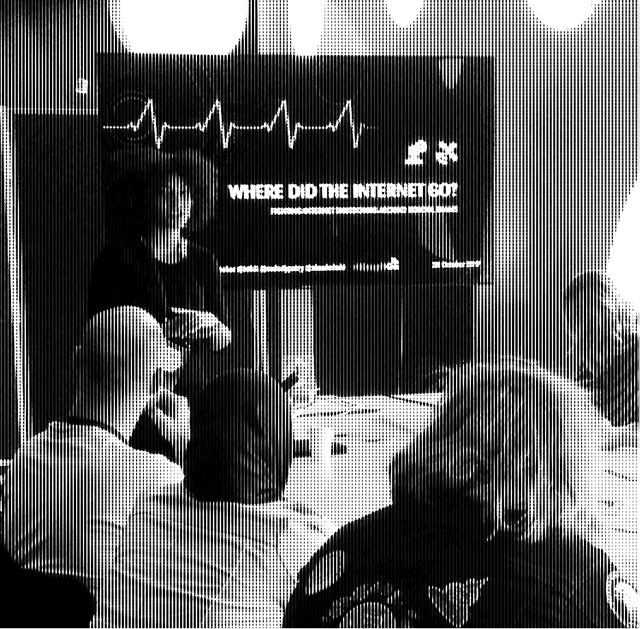
At the end of last year I helped wrangle the Decentralization Space at the Mozilla Festival in London. This was the first year such a space had been proposed, which made it all the more exciting.
Decentralisation is a very diverse and apparently quite emotive subject. Spanning social movements, cryptocurrency and everything in between; this year’s Decentralization Space at the Mozilla Festival was packed and reflected many people’s excitement around the subject.
Sessions incorporated various types of media, from photography and other visual artforms, through board games to hand assembled systems made out of ping-pong balls and straws. Some discussions dove into the nitty gritty of decentralising the web, many required no prior knowledge of the subject.
Due to the high calibre of sessions and the significance of their content, I felt I should document them somewhere. My hope is that this post will act as a jumping off point for further exploration of the miriad of topics related to decentralisation.
I couldn't attend all the sessions, although you could often find me strategically standing between four of them occurring at the same time. To describe that experience as a firehose would be to understate it!
What follows then, is my best attempt at a roundup of those sessions in the Decentralization Space at MozFest 2017, with links to further resources.
Governance, Cooperatives and Cooperation
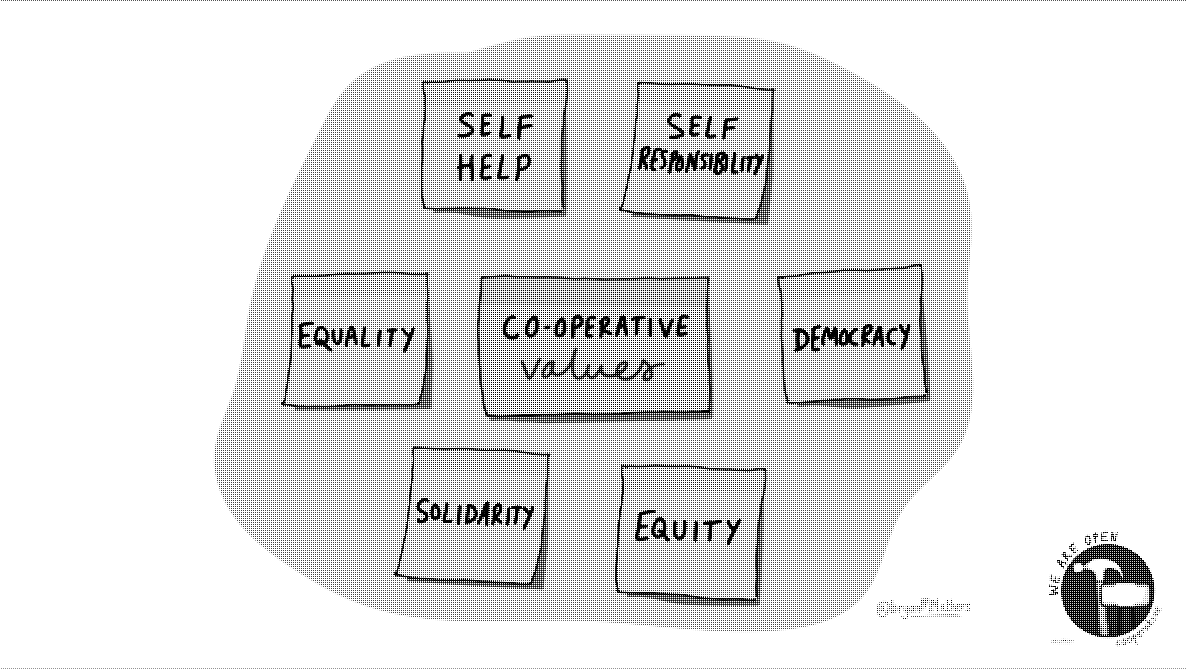 Image courtesy Bryan Mathers from We Are Open Co-op
Image courtesy Bryan Mathers from We Are Open Co-op
There were so many sessions in the MozFest Decentralization Space it’s hard to know where to start, but perhaps it’s worth beginning with the social and governance side of decentralisation; for example cooperatives.
Most dictionaries define decentralisation in the context of governance, for example the Oxford English Dictionary defines it as:
“The transfer of authority from central to local government.”
Wikipedia defines a Cooperative as:
and goes on to touch on origins:
I’m happy to report that we had a number of sessions related to the concept of working with or as part of cooperatives.
John Bevan and Bryan Mathers from We Are Open Co-op facilitated a session titled: "Co-op? So what? - a collaborative think-a-thon" - part of the remit:
"to help people think about knotty problems in an open, inclusive, and participatory way. The process involves as much drawing as it does thinking and writing..."
for more info on that session, it's worth taking a look through the slides.
Pietro Polsinelli’s approach to getting people interested in Cooperatives was to create a board game and run the session “(Platform) Coops & Dragons: role play the board game” to illustrate the relationship between Platform Cooperatives and corporations. Lurking in his cubicle over the duration of the festival he managed to lure people into playing and giving feedback.
To find out more check out blog posts: “Creating a Board Game on Platform Cooperativism” and if you’re interested in trying out Coops and Dragons the game itself is available for free on GitHub.
Meanwhile Kristi Pogri asked how technology affects today's diplomacy and policymaking, focussing on a decentralised approach, in the session: “Mozilla - A role model for modern diplomacy”.
Cryptocurrency, The Blockchain and all that
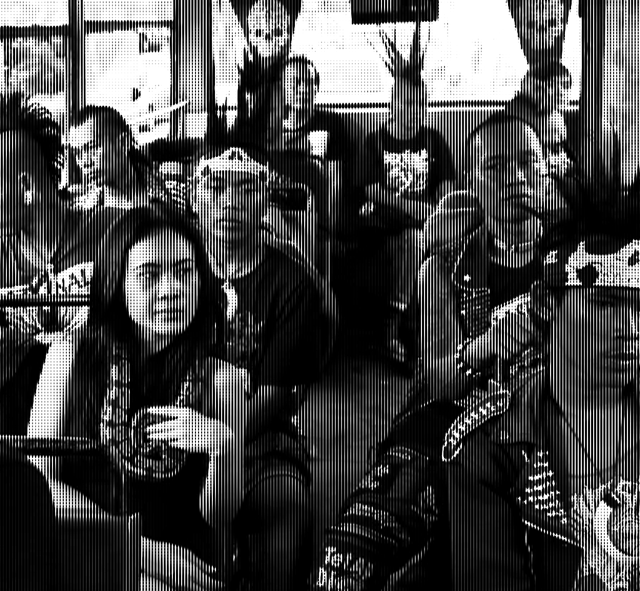 Image from A Punk Daydream courtesy Kristian Van der Heyden
Image from A Punk Daydream courtesy Kristian Van der Heyden
Perhaps unsurprisingly we had some sessions that focussed in on blockchain technology, perhaps surprisingly only a few and only one in the context of cryptocurrency. It’s extremely tempting to get caught up in the fervour of current Bitcoin speculation, but any excitement should probably be tempered by the realisation that:
Of course technology plays a very large part in decentralisation and it's fascinating to see elements of that technology hit the mainstream.
Abhiram Ravikumar ran a very packed session titled “Demystifying ethereum to build your own decentralized app (Ðapp) using blockchain” - yes the ‘Ð’ in ‘Ðapp’ is intentional :). For those interested, some more resources are available on the session’s Etherpad.
Naomi Penfold representing eLife(a non-profit organisation inspired by research funders and led by scientists) and Kade Morton facilitated “Blockchain for research: a real opportunity or just hype?” asking the questions:
- What is the ecosystem we want?
- Is blockchain the technology we are looking for?
- What is blockchain?
- Can blockchain be applied to different industries?
More info can be found by checking out the outputs of this session.
You can find a nice writeup of eLife's activities at MozFest here.
Kade writes more about this in their Aletheia 101 Blog Post
Meanwhile Kristian Van der Heyden shared his frustrations on “Smart Blockchain Indie Film Distribution, and the Internet Of Things”. Incidentally it's worth checking out Kristian's latest documentary A Punk Daydream.
Other sessions mentioned the blockchain but these sessions demonstrated that there is much more to the blockchain than cryptocurrency.
Peer-to-Peer and Related Protocols
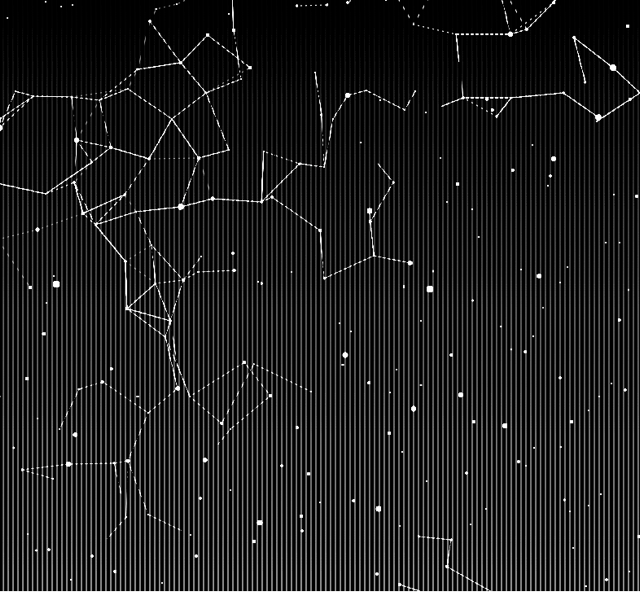
There were a number of sessions that demonstrated and explained the transport protocols behind Peer-to-Peer (P2P) systems.
P2P is an important aspect of decentralisation - the idea is that by offloading processing amongst the users of a system, things will auto-scale. It also promises a certain level of resilience due to fewer single points of failures.
Reminiscent of Ted Nelson's ideas around Transclusion,
“Read/write web browsers” by Gerben was a session that explored the possibility of the humble hyperlink being bi-directional and put that theory into practice.
ActivityPub
Evan Prodromou from Fuzzy.ai ran “The ActivityPub Network” session to give an overview of the W3C's ActivityStreams 2.0 social data standard and its on-the-wire protocol ActivityPub. Touching on its implementation in software like Mastodon, pump.io, Mediagoblin and GNU Social.
Dat
Dat is an open transfer protocol designed to distribute data in a decentralised or P2P manner over the web. The Dat Project is more than a protocol however, it’s also a critical component of data preservation efforts.
As you can imagine there are some very interesting projects using Dat, one of which is Beaker Browser (a P2P browser!). Excitingly one of the developers of Beaker Browser and Hashbase (hosting for the P2P web) was able to make it to MozFest to facilitate Tara Vancil presented “Re-decentralizing the Web with a peer-to-peer browser”.
The aim of the session:
"We expect participants will leave with a clear sense of how modern peer-to-peer file sharing protocols provide tools to make Web publishing simple and very cheap, and how Beaker is using the Dat protocol to enable decentralized Web publishing and to build applications where users retain authority over their data."
Independently Danielle Robinson facilitated “Host your data on the peer to peer web with Dat”.
"a beginner friendly tutorial on hosting a simple website from a personal computer and making it available over the peer to peer web using Dat" - "For advanced users, participants will learn how to access and import scientific datasets using the Dat protocol."
IPFS
According to Wikipedia IPFS stands for InterPlanetary File System (cue The Beastie Boys) which of course is a fantastic name.
Wikipedia goes on to describe it as:
Reading further you’ll discover that it takes advantage of the Bitcoin blockchain protocol and further still, that in October 2017 the Catalan Pirate Party mirrored Catalan Independence related websites on IPFS to bypass the High Court of Justice of Catalonia order of blocking.
We were lucky to have David Dias and Pedro Teixeira come and facilite sessions around IPFS and its application, including the intriguingly titled "Building Google Docs without the Google (CRDT + IPFS)" (slides). CRDT stands for Conflict-free Replicated Data Type - “a data structure which can be replicated across multiple computers in a network...”
A related session "InterPlanetary Linked-Data" - see also ipld.io led by Nicola Greco dived into the benefits of Hash Linked Data Structures and how they could be useful for accessing Merkle Tree like data Structures such as the blockchain.
David, Pedro and Nicola also brought us a more general session simply titled “The Distributed Web” - it's worth looking through the associated Google Doc for further info.
Matrix
Not really a protocol, but wanted to give a big shout-out to Ross Schulman who used the decentralised Matrix platform to create a Slack alternative for the festival (which worked very well) and spread the knowledge about platforms such as Matrix in the session “Let's Keep Our Chat Local”
Mesh Networks
Imagine that you’re in the middle of some sort of catastrophe and your internet is down, but you can still connect to other people’s devices. Imagine you want to send a message to a device that is not directly in range - the promise of mesh networking is that it allows you to do this. Effectively every node is a router and your message will be percolated through the network.
Wikipedia offers the following definition Mesh Networking:
Daniela Perdomo Co-founder & CEO of GoTenna presented the session “Create your own off-grid, long-range mobile mesh networks”
One of the goals of the session was to:
"Create a community of like-minded developers who care about building a scalable decentralized connectivity layer that may be essential to increasing scale, resiliency & access to essential connectivity"
Justin Kilpatrick facilitated “Incentivized mesh, building a last mile of our own” where he presented Althea :
"the first incentiveized mesh protocol, where nodes are paid for their participation in routing using decentralized cryptocurrency micropayments."
Essentially software that will let communities set up decentralized ISPs!
On a similar theme “Portable Network Kits (PNK)” a session by Raul Enriquez whose aim was for participants to walk away with skills to assemble, configure, and deploy portable network kits and
“to create and mobilize autonomous, locally-controlled information systems for self-determination, mutual aid, and digital sovereignty.”
Data - Open, Decentralised and Fighting Propaganda
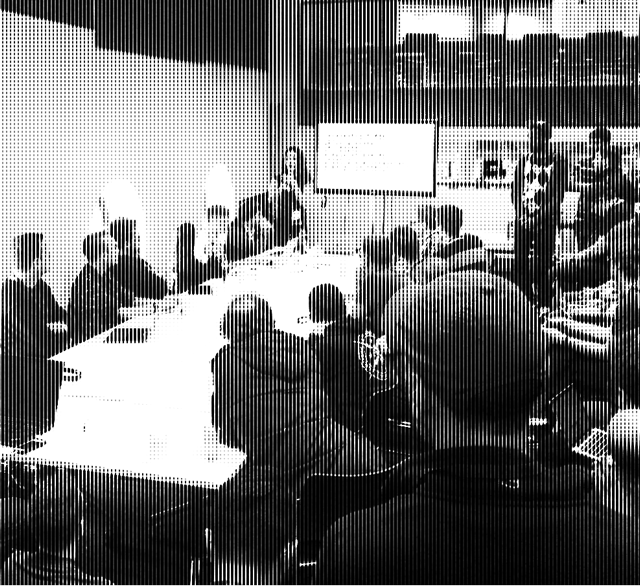
We also had several sessions related to other aspects of data - including the wonderfully titled “Design & Deception: A Crash Course in Data Distortion” facilitated by Jess Sauer and Gilbert Slade.
One of the goals:
"We aim to illustrate that those who own the data own the message while giving participants a vocabulary they can use to question the methods used by propagandists to achieve political aims."
Andy Crabtree from Nottingham University facilitated “Databox - Decentring Personal Data Processing” introducing the Databox application SDK.
Part of the idea behind the session was to educate and learn from partcipants how Databox could be used to create a "decentred future".
Paulina Bustos Arellano from Article 19 ran a “Workshop on how to conduct a focal Open Data evaluations for your country”.
From the session brief:
"In the last couple of years, we have been occupied with creating a Data Pipeline, this Data Pipeline is technical and structural. It is a sorrow to admit that our efforts have been at best insufficient for the Open Data social demands. Therefore we need better methods, our attempt with this session is create the new iteration of Open Data demands.
As archivists of a large portion of the Internet’s data, the Internet Archive are naturally interested in the decentralisation of data. Tracey Jacquith presented the session : “TV Archives cracked open - ‘AI for IA’ - Artificial Intelligence for Internet Archive” exploring what we can do to distribute the processing and collection of meta-data by working with journalists, researchers, hackers and artificial intelligence folks. More specifically to learn more about what's available at archive.org/tv and help extend with API ideas and experiments.
Focussing on scientific data Kade Morton introduced Aletheia also GitHub - “A Decentralised, Open Access, Publishing Platform for Scientific Research” - Altheia was inspired in part by the documentary The Internet’s Own Boy : The Story of Aaron Swartz and covered problems in academic publishing by describing Aletheia, how it’s applicable to the problems in academic publishing, how it differs from existing forms of open access and how people can contribute.
Civil Liberty and the Open Web
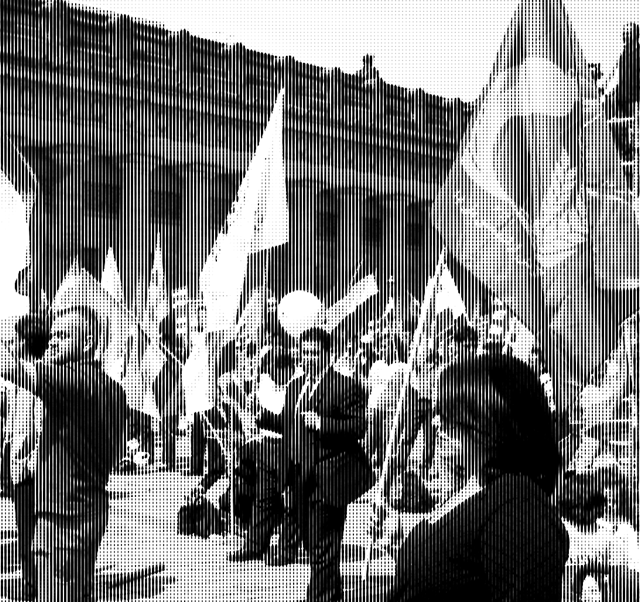 “Protest” by Adrian Sampson is licensed under CC BY 2.0
“Protest” by Adrian Sampson is licensed under CC BY 2.0
When you think about decentralisation you may not immediately think of civil liberty and yet the connection is strong.
“Just Numbers” a session by Nasser Eledroos which amongst other issues, touched on how police collect data from citizens through surveillance equipment.
“Hijacking the medium of public space” - a session by Wael Eskandar who drew on his present and past experiences in Egypt of organising and communicating in public spaces.
Meanwhile Angsar Koene and Yohko Hatada tackled Algorithmic Discrimination in the session : “Algorithmically Mediated Online Information Access” an interactive audience discussion starting with a mini-experiment which presented participants with a ‘limited resources’ scenario (e.g. allocation of game character type) and discussing which of the five algorithms for assigning characters to players was most fair.
Part of the UnBias project - the goal of the session :
“to gain insights into the knowledge, perceptions and concerns of people regarding algorithms that intermediate between internet users and online information.”
“Decentralization and Dignity against Digital Colonialism” - a session presented by Renata Avila afflilated with the World Wide Web Foundation - the goal of which was to discuss: “the sociological and political importance of free software, decentralised technologies, ethical frames for data, web literacy and autonomous, decentralised solutions to tackle colonial efforts, resulting in freedom and dignity for people.”
Digital Colonialism referring to tech companies’ quest for “global domination, penetrating every government, computing every citizen movement, mediating every act of any connected person’s life.”
Laura Dornheim of Flattr tackled ad-funding in the session “Rolling back the ad-dependency, funding content peer-to-peer” aiming to “educate about the negative impacts of the dependency on advertising not only in journalism, but all across the web, email-providers, dating sites, YouTube channels…”
Decentralization in Digital Ecosystems. Is there a Hidden Centre? was the intriguing title of a session led by Carolina Tejada and Leonardo Schvarstein where “participants will experiment with decentralization and try to find out where a hidden center might be. The structures and connections that the group would form, will respond to similar social dynamics within digital ecosystems.” Link to their presentation here and the instructions for the activity in case anyone wants to run a similar workshop.
Nicole Ebber and Alek Tarkowski facilitated the session “The Big Open – Joining Forces on the Quest for the Free and Open” Where the opportunities for organisations like Mozilla, Wikimedia and Creative Commons to work together were explored.
Gigi Sohn asked the big question “Will the Open Internet Survive?” which giving the looming vote in the US to abolish Net Neutrality in November (and subsequent result) seemed timely. Policies and approaches to Open Internet policy in the US, EU, India, Brazil were examined and discussed.
Tim Cowlishaw from the BBC ran the curiously titled “A digital derive” - An introduction to the politics of public space, based on the work of the Situationist International, and a workshop on how to apply their thought and techniques to the politics of online life.
Education
There were a number of sessions that featured learning or had educational themes at their heart.
“Where did the internet go? Fighting shutdowns around school exams” submitted by Deji Bryce Olukotun and facillitated by Melody Patry of Access Now which dug deep into the broader issue of internet shutdowns by governments.
In the gallery session “Open Data/Open Minds: Explorations in Data, Literacy, Craft, & Code” Elisabeth Sylvan of NEXMAP’s “Open Data/Open Minds” initiative illustrated :
“an equity-based data literacy and civic engagement project that combines tradition and innovation in its use of paper and electronics. While we focus on the 10-14 age group and their educators, the approach and materials support learners and learning spaces of all kinds.”
Calum Ryan presented the IndieWeb movement in the session “Introducing the IndieWeb movement” which aimed “to discuss the challenges and opportunities we face using a somewhat centralised web through existing social network platforms like Facebook”.
Cerys Lock introduced people to Code Club in the aptly titled “Introduction to Code Club” session where partcipants followed worksheets to produce a working program in one of three languages.
Following the educational theme Martin Hawksey took the session “Putting professionals at the heart of education in the internet age” described as:
“exploring how we can put people, and more specifically educators, at the heart of learning, teaching and assessment with technology.”
And Introduced CMALT - a peer-based professional accreditation scheme.
You can find the further info here.
Parallel Processing
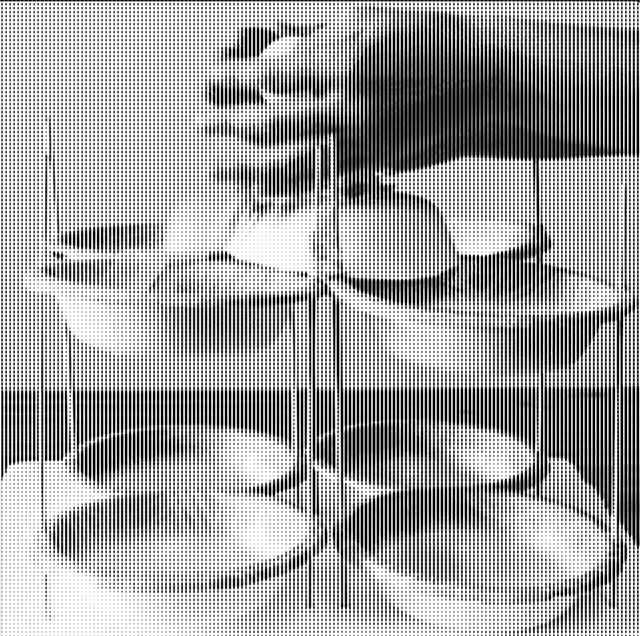
One of the advantages of Decentralisation is the potential for parallel processing, this was discussed and played out in a hands-on session "Explore Parallel Processing by building a hands on design challenge" by Devin Dillon of Iridescent based on this design challenge, participants were tasked with sorting ping pong balls and and marbles using everyday objects such as cards and sticks. It certainly looked like a fun way to learn.
Art, Creativity and Dating
Amongest the stuff that doesn't really fall into other categories we had some very interesting art sessions in the Gallery space, including:
Artist Open Studio + Archana Prasad
When it came time to review proposals we were particularly taken with a session titled “Wring your Fibre” - the aim - to raise awareness about eco-friendly fibres that promote sustainable development by being a regenerative and decentralised source of raw material for various industries such as paper, textiles, agriculture etc.
The session saw a discussion on importance of natural fibres and the role they can play in environment and social empowerment. It concluded with a small activity around making personalised souvenirs from banana fibre.
Evan Prodromou wrote “I realize it seems trivial to people thinking only of press freedom, but romance and sexuality are a huge part of human existence” about the Saturday session “Dating on the Open Web”
On Sunday Ian Forrester from the BBC held an emergent session about Dating on the Web - throwing in his own thoughts about decentralised dating - he writes more about that in the blog post “Why the future of online dating is a bigger deal than you think”
A Note on Diversity
I was really happy to note that we managed a really good gender balance among facilitators and pretty good diversity on the geographic front also.
That's it!
In a world that’s gone a bit mad for Bitcoin, it's worth considering the social ramifications of decentralisation. After all, decentralisation is so much more than blockchains and cryptocurrencies.
Hopefully you've found something to pique your interest.
Oh and I gave a 15 minute talk in Florence about the Decentralization Space, the slides are available online.
Feel free to reach out to me on Twitter or other. I use the handle maboa in most places :)